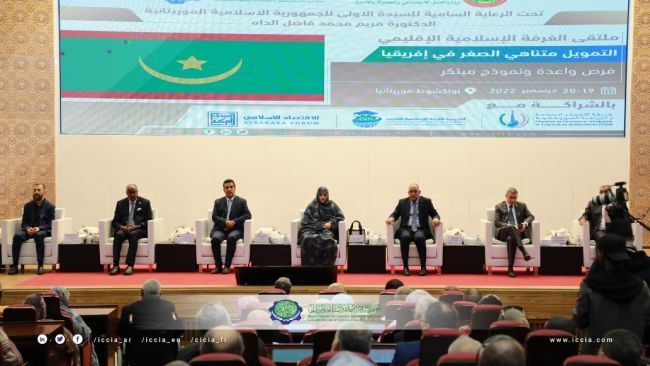ICCIA's Regional Forum in Mauritania
ICCIA's Regional Forum in Mauritania
“Microfinance in Africa: Promising Opportunities and an Innovative Model” Under the auspices of the First Lady of the Islamic Republic of Mauritania, H.E. Dr. Mariem Mohamed Fadel Dah with the aim of raising awareness of the importance of microfinance, discussing innovative approaches, and exploring the most successful experiences in this field.
Press Report
ICCIA’S REGIONAL FORUM “MICROFINANCE IN AFRICA: PROMISING OPPORTUNITIES AND AN INNOVATIVE MODEL”
In conjunction with the growing global interest in the concept of microfinance,
and under the auspices of the First Lady of the Islamic Republic of Mauritania, ICCIA organized its regional forum “Microfinance in Africa: Promising Opportunities and an Innovative Model”, was held in partnership with the Ministry of Social Affairs, Children and Family of Mauritania, the Chamber of Commerce, Industry and Agriculture of Mauritania (CCIAM), AlBaraka Forum for Islamic Economy and ICCIA Training Academy, on Monday and Tuesday, December 19 – 20, 2022, in Nouakchott, the Islamic Republic of Mauritania.

The forum witnessed the presence and participation of a selection of highlevel governmental officials from the Islamic Republic of Mauritania and leading international organizations’ representatives, as well as several economic leaders and experts from across the African continent, to address various ways and prospects of boosting microfinance, encouraging collaborative efforts to promote it and crystallizing its importance in fostering global economic growth.

At the opening session of the forum, His Excellency Mr. Yousef Khalawi, Secretary-General of the Islamic Chamber delivered the opening remarks, emphasizing the necessity for empowering the private sector, which is considered an engine for economic growth and development. Further, His Excellency shed light on ICCIA’s strenuous efforts to drive the development of OIC member countries forward.
As part of its keenness on the economic and social enhancement of the Islamic nation, the Organization of Islamic Cooperation participated in ICCIA’s regional forum, in an effort to foster and support the joint Islamic action towards prosperity and sustainability.
The opening ceremony of the forum witnessed the participation of H.E. Ambassador Tarek Ali Bekhit, Assistant Secretary General for Humanitarian, Cultural and Social Affairs of OIC, who commend ICCIA’s tireless efforts to strengthen the cooperative relationships among the member countries on various issues of common concern, as well as improving the capabilities of the national institutions to achieve economic development, which is one of the objectives of OIC Plan of Action 2025.

Undoubtedly, the steady steps that the Mauritanian government has taken in encouraging microfinance, entrepreneurship, and women empowerment in the past decade speak for themselves, promising the region a bright future for the Islamic Republic of Mauritania.

In this regard, we were honored by the participation of H.E. the Minister of Social Affairs, Children and Family of the Islamic Republic of Mauritania, Ms. Safiya bint Intah, who highlighted, during her opening speech at our regional forum, the initiatives carried out by the ministry to promote microfinance as an effective mechanism to increase the engagement of vulnerable groups in the economic activities, pointing out the project that provides zero-interest loans to finance the revenuegenerating activities and small enterprises of women, as a serious step towards the economic empowerment of women.
Complementing its dedication to mitigate the global impacts of climate change and its endeavors to encourage the transition towards green economy in its member countries, ICCIA signed the Green Waqf Tripartite Agreement with the Ministry of Agriculture of Mauritania and the Chamber of Commerce, Industry and Agriculture of Mauritania, with the purpose of supporting the participation of vulnerable groups, promoting the concept of social finance as an effective means for the transition towards green economy, achieving food security and enhancing adaptive capabilities to climate change. The agreement also seeks commanding the support and participation of the private sector to guarantee the project sustainability and developing a working model that can be replicated in another countries, particularly the rest of the G5 Sahel countries and the OIC member countries at large.

Furthermore, on the sidelines of ICCIA’s regional forum, the Tripartite Agreement for Tracking the Implementation of Establishing Microfinance Institutions in Mauritania has been signed between the Islamic Chamber of Commerce, Industry and Agriculture, the Ministry of Agriculture of Mauritania and the Chamber of Commerce, Industry and Agriculture of Mauritania, for establishing microfinance institutions to work on increasing the participation of vulnerable groups in the economic activities across the country, besides promoting social financing as an effective way to empower the vulnerable groups economically, as well as promoting the private sector to guarantee the project sustainability, and establishing an efficient model that can be replicated in the rest of OIC member countries.
Moreover, the forum witnessed several sessions that aim towards one solid objective, which is raising awareness about the importance of microfinance and its significance in achieving a more sustainable and prosperous future for Africa.

On this matter, Dr. Mohamed Ibrahim, CEO of ICCIA Holding Company and AlBaraka Forum for Islamic Economy, discussed the innovative microfinance model that has been developed by ICCIA to establish new microfinance institutions to support entrepreneurship and empower vulnerable groups in various economic activities, thus advance the economic growth of the member countries, highlighting the crucial impact of impact investment, as one of the components of ICCIA’s Microfinance Model, during his participation in the session entitled “ICCIA’s Innovative Microfinance Model”.
As the connection between microfinance and digitalization are getting stronger year after year, Dr. Mohamed Ibrahim emphasized that ICCIA microfinance project provides the services in a digital way, in order to promote financial inclusion and improve the access for customers, hence driving the development process across the OIC member countries forward.
As achieving economic growth in an environmentally-friendly manner has always been a fundamental objective for ICCIA, it has developed a sustainable model to be applied across its member chambers.
Within this framework, Ms. Passent Waguih, Officer, Member Relation Management Department at ICCIA, reviewed this model, within her participation in the session entitled “Sustainable Chamber Model”, indicating that it is an innovative mechanism to overcome the challenges facing the member countries in the transition to sustainability. Furthermore, she underlined digital transformation as one of the axes of the sustainable chamber model, affirming the necessity to develop the needed plans and projects to make it easier to apply digitalization in the internal and external deals of the member chambers.


As part of ICCIA’s tireless effort to maintain a clean and sustainable environment is Mr. Ahmed Khater, Communications Associate for ICCIA, reviewed its Green Waqf initiative and its crucial role in restoring ecological balance, reducing global warming, and preventing the consequences of climate change for future generations.
In this regard, it’s worth mentioning that green finance is an effective means that could not be underestimated. Therefore, Dr. Mohamed Ibrahim, CEO of ICCIA Holding Company and AlBaraka Forum for Islamic Economy, tackled the distinctive role of green finance in optimizing the available resources, thereby contributing to advancing economic growth of the nations across the world.
Concerning ICCIA’s responsibility and commitment to spurring the Islamic economy globally, and on the sidelines of the regional forum, H.E. Mr. Yousef Khalawi, Secretary-General of the Islamic Chamber of Commerce, Industry and Agriculture gave a lecture entitled “Islamic Economy and Future Prospects in Africa”, in partnership with the University of Nouakchott at the Congress Palace, where his excellency shed light on the future prospects and potentials of Islamic economy across the African continent and the world.

During the lecture, H.E. Mr. Yousef Khalawi discussed various Islamic financing mechanisms; such as “Sukuk” which is considered a more flexible funding mechanism used by several governments, even the non-Muslim ones, as well as microfinance with its necessity in the developing countries, indicating: “If we look at the developing countries, we’ll find out that their need to this kind of funding is doubles of their need to the banking system.”
As part of ICCIA’s strenuous endeavors to enhance its cooperative relations with its member countries, and on the sidelines of the regional forum, ICCIA Secretary General held several meetings that are in the interest of the member countries, particularly the African ones; one of these meetings was with the Chambers of Commerce and Industry of the G5 Sahel countries, in order to discuss joint activities, as well as exploring ways of promoting economic development of these countries and enhancing their contribution in the global economic life.
Moreover, H.E. Mr. Yousef Khalawi, ICCIA Secretary-General had a meeting with Dr. Mohamed Ibrahim, CEO of ICCIA Holding Company and Albaraka Forum for Islamic Economy, as well as representatives from the Organization of Islamic Cooperation (OIC), chambers of commerce and national committees of the Republic of Chad, Islamic Republic of Mauritania, the Republic of Niger, and Burkina Faso, to discuss the latest updates of the establishment of microfinance institutions in the G5 Sahel countries.
ICCIA’s regional forum “Microfinance in Africa: Promising Opportunities and an Innovative Model” is part of its endeavors to promote the concept of microfinance globally and provide a prosperous life for its member countries.
Accordingly, ICCIA stresses its strenuous commitment of take all the ways and measurements that guarantee the advancement of economic development across the OIC 57 member countries and the world at large.
About ICCIA:
Islamic Chamber of Commerce, Industry, and agriculture is an international institution affiliated of the Organization of Islamic Cooperation (OIC). It represents the private sector of 57 member countries of OIC, as well as observer members and other associate members from Muslim minorities. ICCIA aims at strengthening cooperation among its member states in the areas of trade, Industry, and information technology, and promoting Investment opportunities and joint- projects among member states. Its membership consists of national chambers, unions, councils of chambers of commerce and industry in OIC member states.
ICCIA was established based on the decision of the Seventh Islamic Conference of Foreign Ministers, which took place In May, 1976 in Istanbul, Turkey. And was adopted by the first conference of chambers of commerce and industry in the Islamic world countries, which also held in Istanbul, Turkey in Oct., 1977.
Later, the constitution of ICCIA was passed by the second conference of chambers of commerce and Industry in Islamic world countries, which held in Dec., 1978 in Karachi. Its headquarters in Karachi, the economic capital of the Republic of Pakistan.
For more information about ICCIA and its upcoming economic projects, kindly visit our website: https://iccdglobal.com , or contact Media Department via email: news@iccia.com .




